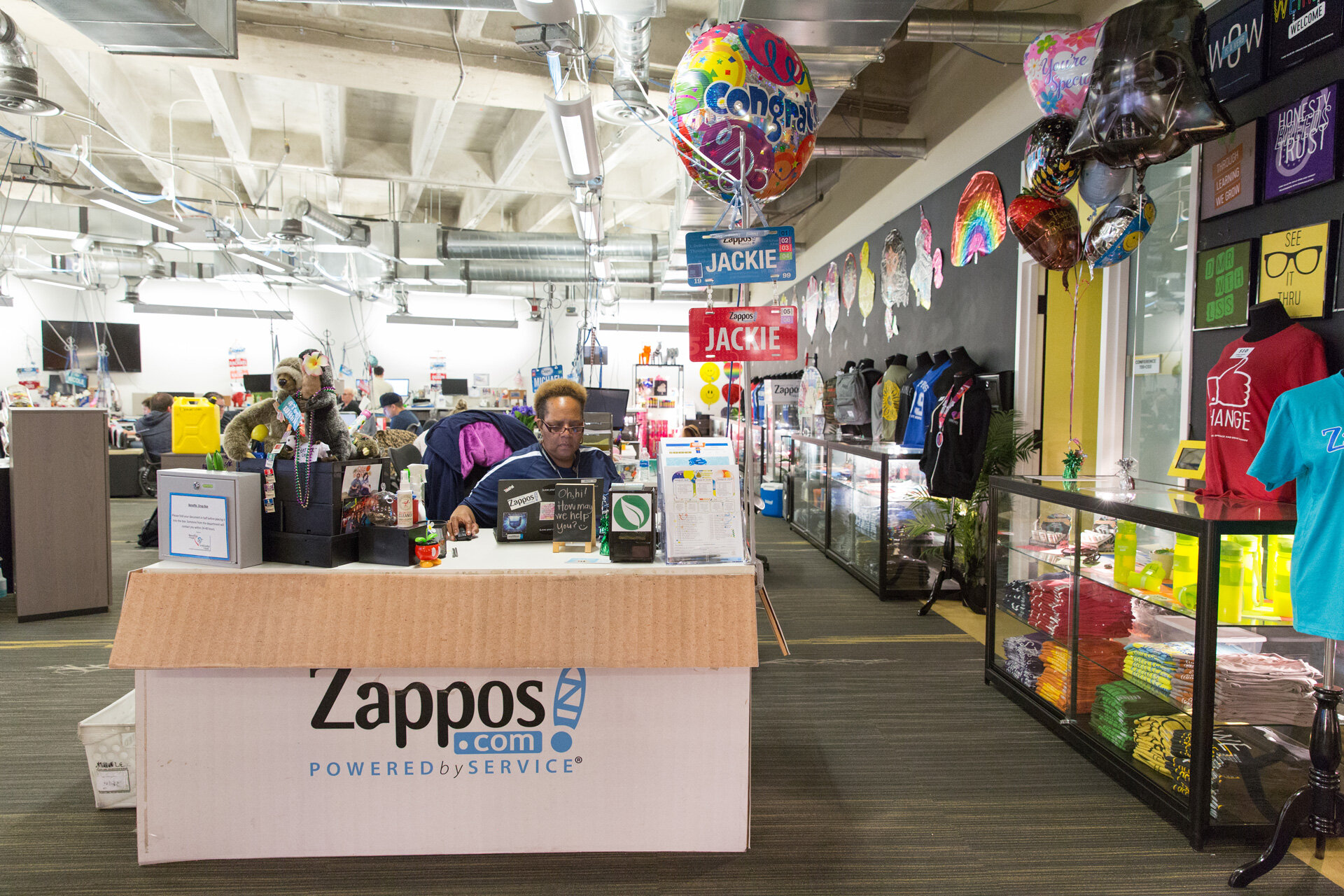“Everyone’s a little weird somehow” An interview with Zappos CEO, Tony Hsieh
Zappos needs little introduction – it has redefined the possibilities of customer service not simply in online retailing, but in any retailing. Its CEO Tony Hsieh in fact describes Zappos as a service company that just happens to sell shoes. We interview Hsieh at its offices in Las Vegas, and ask him how he’s built a business with a personal connection that’s grown to sales of $1.2bn in ten years.
How important is hiring the right person, in delivering the Zappos experience?
It’s much harder to get someone to behave differently from who they intrinsically are. So for us it’s really just about hiring people whose personal values match the corporate values, and then every employee is automatically just living the brand, and you don’t need to worry about what they’re going to do at the bar or what they’re going to do on Twitter.
How do you assess whether someone is right for Zappos?
One of our interview questions is ‘On a scale of one to 10, how weird are you?’ If you’re a one, you’re probably a little bit too straight-laced for us. If you’re a 10, you might be a little too psychotic for us. But it’s not actually what number they give, but more seeing candidates’ reaction to it and how they respond to it, because there are some candidates that are trying to figure out, ‘okay, what’s the right number to say?’, as opposed to being honest about it or about what they think. Our belief is that everyone’s a little weird somehow, and it’s really more just a fun way of saying that we really recognise and celebrate each person’s individuality, and we want their true personalities and creativity to shine in the workplace, and that’s whether it’s with each other as co-workers or over the phone with customers.
How would I experience this kind of authentic human character in contacting Zappos?
So if you’re a customer and you call us, our reps all know the goal is to make the customer happy and develop a personal emotional connection with them. So maybe you call us the first time and you get someone that’s really chatty and loves telling jokes and is making you laugh, and that’s great. After you get off the phone, you would be wowed, hopefully. Then if you call a second time, maybe you get someone that’s not a joke teller, but the person hears, say, your dog barking in the background, and if that person also has a dog, then you can connect on dog-ness or whatever dog owners connect about.
You are famous for the degree of freedom you give Zappos employees to show their human side. Can you give us a sense of how that works?
Employees send flowers for whatever they feel is right. For example, if it’s someone’s wedding or maybe sometimes we get calls from customers that have to go to a funeral and need shoes for the funeral, they’ll send flowers. We had someone who ordered from us, and there was some mix-up in the shipping department, and they were a soldier overseas. I think we accidentally shipped them an Xbox or something like that. So they were calling us to figure out how to return it, and the rep decided to just let them keep it, and in fact, went and sent some games, as well, to go along with it just on our own dime.
So how do you ensure people don’t go off-brand with that kind of freedom?
We don’t have scripts in our call centre because we really want people just to be themselves and use their best judgement, and just know that the goal is to develop these connections with customers. Many corporations try to come up with rules and policies to prevent certain behaviours, but if you get the right employees, in the first place, and make sure that every employee understands the long-term vision of the company and the brand that we’re trying to build, then it’s just much easier. Life becomes much simpler, and you don’t need all these policies. You don’t need to dictate behaviour. So everyone knows culture is important, and everyone knows customer service is important. The question is, why don’t more companies focus on either of those two? And I think it’s because they’re both longer-term investments. I think the payoff is usually two or three years down the line, and we went through a recession in the last year or two and we, actually, at Zappos, continued to grow year over year. And people ask us, ‘How did you do it through the recession?’, and the reason we continued to grow was because of our investments into customer service and culture that we had made two or three years prior to that. Ultimately, it comes down to financial results, and we’ve grown from no sales in 1999 to over $1bn in gross merchandise sales, and we’re continuing to grow year over year.




